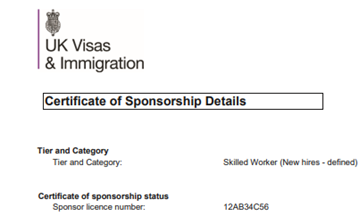The Regulated Qualifications Framework (RQF) underpins how the UK assesses qualifications for Skilled Worker visa eligibility. For employers sponsoring international staff, especially in sectors like care, understanding RQF levels—and recent changes to them—is essential.
This guide explains what the RQF is, how it impacts immigration sponsorship, and the urgent steps employers must take ahead of the upcoming rule changes.
What is the Regulated Qualifications Framework (RQF)?
The RQF is a UK-wide framework used to classify qualifications based on their complexity and learning outcomes. It consists of 8 levels, ranging from Level 1 (basic) to Level 8 (doctoral degrees).
Each level helps employers understand the equivalency of UK and international qualifications—critical when sponsoring overseas talent.
RQF Levels at a Glance
Automate Home Office Audits with Borderless
The Borderless platform provides a centralized system for all sponsorships, automating reminders for key tasks and ensuring best practices across your organization, simplifying audit preparation and ongoing compliance.
Employers can assess foreign qualifications by comparing them with the RQF using UK ENIC or specialist support from a platform like Borderless.
Why RQF Matters for Immigration and Sponsorship
Until now, many jobs eligible for sponsorship—like care workers—required qualifications at RQF Level 3 or above. But that is changing.
From 22 July 2025: Minimum Skill Level Increases to RQF 6
As announced in the 2025 Immigration White Paper, the UK Government will raise the minimum skill level for Skilled Worker visa eligibility from RQF Level 3 to RQF Level 6.
This is a major shift and means that:
- Only graduate-level jobs will be eligible for sponsorship (RQF Level 6 and above)
- Roles that previously qualified under Level 3 (e.g. care roles) will no longer be eligible unless covered by a transitional provision
4. Care Workers No Longer Eligible for Sponsorship
This is the most significant blow to the care sector.
From 22 July 2025:
- SOC Codes 6135 (Care Workers) and 6136 (Senior Care Workers) will be removed from the Skilled Worker eligible occupation list
- No new out-of-country CoS can be assigned for these roles after this date
- In-country switching remains possible only until July 2028 and only where:
- The worker is already employed with the sponsor for at least 3 months, and
- The role existed prior to the 22 July 2025 cut-off
If you’re planning to sponsor new care workers from overseas, you must act before 22 July 2025.
What Employers Must Do Now
1. Audit Your Job Roles and RQF Levels
Review your job descriptions and SOC codes to see which roles meet the new RQF 6+ requirement.
2. Accelerate Any Planned Overseas Sponsorship
Defined CoS for care workers must be assigned before 22 July. After that, they will be automatically rejected.
3. Use Transitional Provisions Where Applicable
If you’re switching in-country workers already employed by you for 3+ months, document and apply under transitional rules before July 2028.
How Borderless Can Help
Borderless is the UK’s leading immigration platform, supporting over 350 businesses—especially in health and care—with smarter sponsorship.
We help employers:
- Match overseas qualifications to RQF levels using UK ENIC equivalency
- Navigate SOC code changes and policy updates
- Assign CoS before deadlines and avoid common errors
- Stay audit-ready with built-in alerts, document tracking and compliance support
👉 Speak with an immigration expert
Summary
The Regulated Qualifications Framework (RQF) is the UK’s benchmark for assessing qualifications in the immigration system. With major changes arriving on 22 July 2025—including the removal of care worker roles from the eligible list—employers must act quickly to secure sponsorships under the current rules.
The shift from RQF Level 3 to Level 6 will narrow the range of roles eligible for visas and place a greater emphasis on domestic recruitment or in-country transitions.
Let Borderless help you stay ahead of these changes and secure the workers your business needs—before the door closes.






